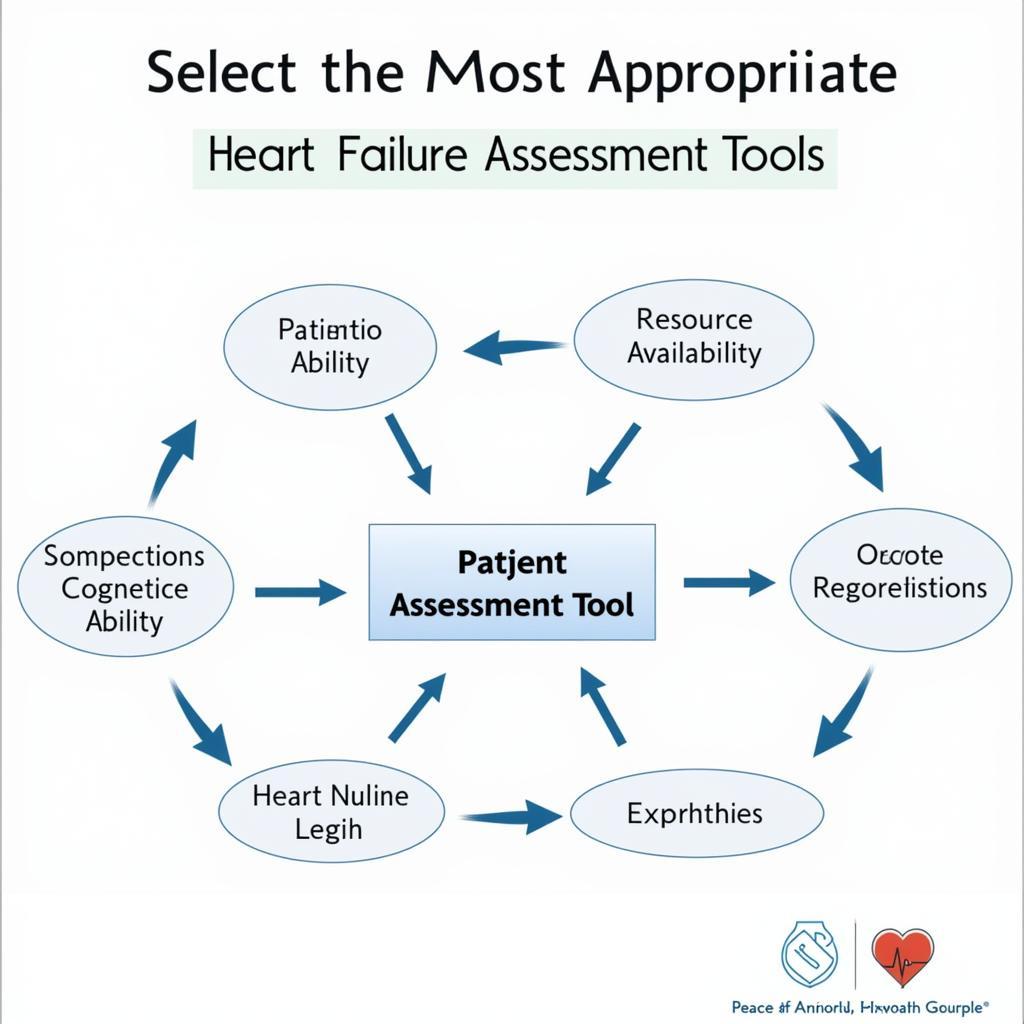Long Term Care Heart Failure Assessment Tools play a vital role in managing heart failure for patients in long-term care settings. These tools help healthcare professionals identify, assess, and monitor the progression of heart failure, enabling them to provide appropriate care and improve patient outcomes. This article will delve into the importance of these tools, explore various types, and discuss their application in enhancing heart failure care.
Understanding the Need for Long Term Care Heart Failure Assessment Tools
Heart failure is a chronic condition requiring ongoing management, particularly for individuals in long-term care facilities. Early detection and accurate assessment are crucial for preventing complications and improving quality of life. Assessment tools provide a structured approach to evaluate various aspects of heart failure, including symptoms, functional capacity, and overall well-being. These tools allow for consistent monitoring and facilitate timely interventions.
Different Types of Long Term Care Heart Failure Assessment Tools
Several assessment tools are available for use in long-term care settings. Some commonly used tools include the New York Heart Association (NYHA) Functional Classification, the Kansas City Cardiomyopathy Questionnaire (KCCQ), and the Minnesota Living with Heart Failure Questionnaire (MLHFQ). Each tool focuses on different aspects of heart failure, and the choice of tool depends on the specific needs of the patient and the facility. The self care heart failure index tool is another example of a tool focused on patient self-management.
Implementing Heart Failure Assessment Tools in Long Term Care
Effective implementation of heart failure assessment tools requires proper training for healthcare staff. Staff members should be familiar with the specific tool being used, its scoring system, and its interpretation. Regular assessment and documentation are essential for tracking patient progress and identifying any changes in their condition. The data collected through these tools can inform care planning, medication management, and lifestyle modifications. What is the best approach for implementing these tools? A collaborative approach involving physicians, nurses, and other healthcare professionals ensures comprehensive care.
Benefits of Using Heart Failure Assessment Tools
Using standardized assessment tools offers numerous benefits, including improved patient outcomes, enhanced communication among healthcare providers, and increased efficiency in care delivery. These tools facilitate early identification of worsening symptoms, enabling prompt intervention and preventing hospitalizations. They also aid in patient education and empower individuals to actively participate in their care. The critical care patient observation tool can be helpful in acute settings. What is the key takeaway here? Regular assessments lead to better management of heart failure and improved quality of life for patients.
“Utilizing standardized heart failure assessment tools in long-term care significantly improves patient outcomes and promotes a proactive approach to care,” says Dr. Emily Carter, a leading cardiologist specializing in geriatric care.
Choosing the Right Assessment Tool
The selection of an appropriate assessment tool depends on various factors, including the patient’s cognitive abilities, the availability of resources, and the specific goals of the assessment. It’s important to consider the tool’s ease of use, validity, and reliability. Some tools are more suitable for assessing functional status, while others focus on symptom management or quality of life. The home care association screening tool of sepsis highlights the importance of specialized tools. What about comparing different tools? Consulting with experts and reviewing current guidelines can help in making informed decisions.
 Choosing the Right Heart Failure Assessment Tool
Choosing the Right Heart Failure Assessment Tool
“The key is to choose a tool that is practical, reliable, and aligns with the individual needs of each patient,” adds Dr. David Miller, a renowned expert in long-term care. The disease management vs care management tools offers a broader perspective on managing chronic conditions. Remember, early intervention is crucial in managing heart failure effectively, especially in long-term care. The sepsis screening tool primary care is another vital tool in this setting.
In conclusion, long term care heart failure assessment tools are indispensable for providing optimal care to individuals with heart failure in long-term care settings. These tools enable early detection, accurate assessment, and ongoing monitoring of the condition, leading to improved patient outcomes and enhanced quality of life.
FAQ (Frequently Asked Questions)
-
What are the most common symptoms of heart failure?
-
How often should heart failure assessments be conducted in long-term care?
-
What are the benefits of using standardized assessment tools?
-
How can healthcare staff be trained to use these tools effectively?
-
How can assessment data be used to improve care planning?
-
What are some common challenges in implementing these tools?
-
How can these tools empower patients to manage their condition?
For support, contact us via WhatsApp: +1(641)206-8880, Email: [email protected], or visit us at 910 Cedar Lane, Chicago, IL 60605, USA. Our customer service team is available 24/7.

Leave a Reply